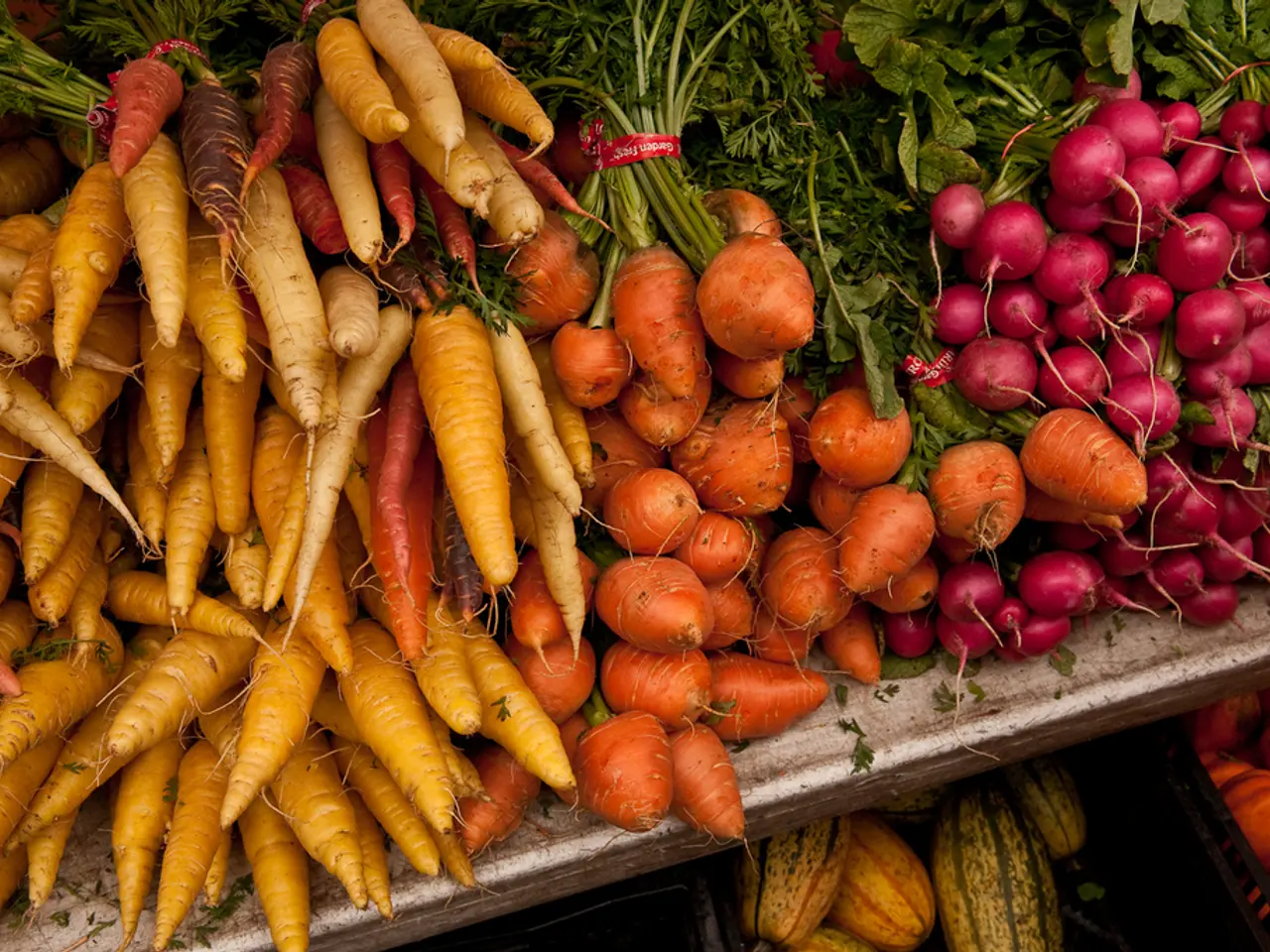Rutabaga Insights: Nutritional Benefits, FAQ Answers, and Additional Information
Rutabaga, a root vegetable that is often described as a cross between a turnip and a cabbage, has gained attention for its nutritional value and potential health benefits. This humble root vegetable belongs to the Brassica family, alongside other cruciferous vegetables like broccoli and Brussels sprouts.
Rutabaga is rich in nutrients and phytochemicals that contribute to its health benefits. It contains vitamins C and E, folate, antioxidants like lutein and beta carotene, and sulfur-containing chemicals. One of the standout nutrients is calcium, with 43 milligrams per 100 grams, making it a good choice for those seeking to increase their calcium intake. Rutabaga is also a good source of magnesium, providing 20 milligrams per 100 grams, and a significant amount of potassium, with 305 milligrams per 100 grams.
Raw rutabaga contains 1.08 grams of protein per 100 grams, making it a modest source of this essential nutrient. It's also a low-calorie food, with approximately 37 calories per 100 grams, making it a suitable choice for those watching their calorie intake.
One of the most intriguing aspects of rutabaga is its potential role in disease prevention. According to health advisories, consuming vegetables, including rutabaga, may protect against some diseases, including some cancers. An older study found that rutabaga plants and sprouts contain compounds that support sleep, mood, and hunger regulation. Moreover, cruciferous vegetables in the Brassica family, such as rutabaga, may help prevent cancer due to the presence of glucosinolates, although human trials have shown mixed results.
However, it's important to note that rutabaga, like many foods, is not without potential side effects. Consuming large amounts of rutabagas may cause gastrointestinal upset, such as gas, bloating, or digestive discomfort, especially in sensitive individuals. This is likely due to the fiber and sulfur-containing compounds present in rutabagas, which can be hard to digest in excess.
Regarding interactions with medications, rutabagas contain polyphenols, which, like those in other foods, may influence the metabolism of certain drugs. However, evidence is limited and mostly theoretical, so anyone taking medication should consult their healthcare provider before consuming large quantities of rutabagas or supplements derived from them.
In conclusion, rutabaga is a nutritious and potentially beneficial addition to a balanced diet. Its low calorie count, high fiber content, and abundance of essential nutrients make it a suitable choice for maintaining a moderate weight and supporting overall health. However, caution should be exercised when consuming large amounts, particularly by those with sensitive digestion or who are taking medication. As always, it's advisable to consult with a healthcare provider for personalised advice.
- A vegan or vegetarian looking for new food options may find rutabaga interesting due to its nutrient-rich profile and potential health benefits.
- The integration of rutabaga into a health-and-wellness lifestyle can provide a boost in essential nutrients like vitamins C and E, folate, and calcium.
- For those pursuing weight-management, rutabaga's low-calorie count and high fiber content make it a suitable choice.
- The science behind the health advantages of rutabaga suggests potential protection against some cancers and support for sleep, mood, and hunger regulation.
- CBD, which is often associated with health-and-wellness and lifestyle, could potentially be paired with rutabaga in healthy-cooking recipes for added benefits.
- Fitness-and-exercise enthusiasts might consider incorporating rutabaga into their recipes as part of a well-rounded approach to nutrition and weight-management.
- Various therapies-and-treatments may recommend a diet change focusing on cruciferous vegetables, such as rutabaga, for the prevention of certain diseases.
- In addition to the benefits of individual foods like rutabaga, following a balanced food-and-drink lifestyle that includes healthy-cooking techniques and diverse recipes can lead to improved nutrition and overall health.




